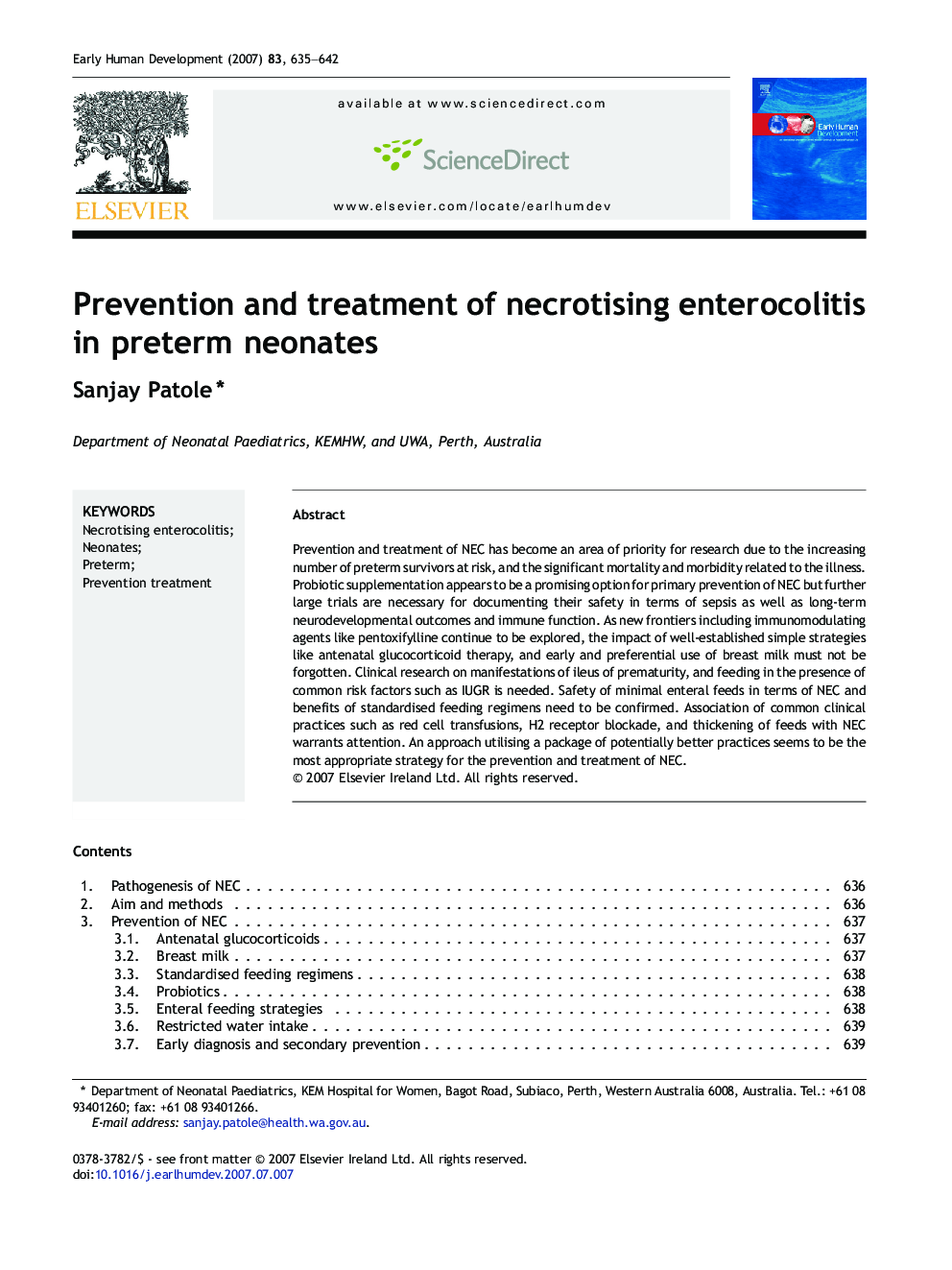| Article ID | Journal | Published Year | Pages | File Type |
|---|---|---|---|---|
| 3918046 | Early Human Development | 2007 | 8 Pages |
Prevention and treatment of NEC has become an area of priority for research due to the increasing number of preterm survivors at risk, and the significant mortality and morbidity related to the illness. Probiotic supplementation appears to be a promising option for primary prevention of NEC but further large trials are necessary for documenting their safety in terms of sepsis as well as long-term neurodevelopmental outcomes and immune function. As new frontiers including immunomodulating agents like pentoxifylline continue to be explored, the impact of well-established simple strategies like antenatal glucocorticoid therapy, and early and preferential use of breast milk must not be forgotten. Clinical research on manifestations of ileus of prematurity, and feeding in the presence of common risk factors such as IUGR is needed. Safety of minimal enteral feeds in terms of NEC and benefits of standardised feeding regimens need to be confirmed. Association of common clinical practices such as red cell transfusions, H2 receptor blockade, and thickening of feeds with NEC warrants attention. An approach utilising a package of potentially better practices seems to be the most appropriate strategy for the prevention and treatment of NEC.
